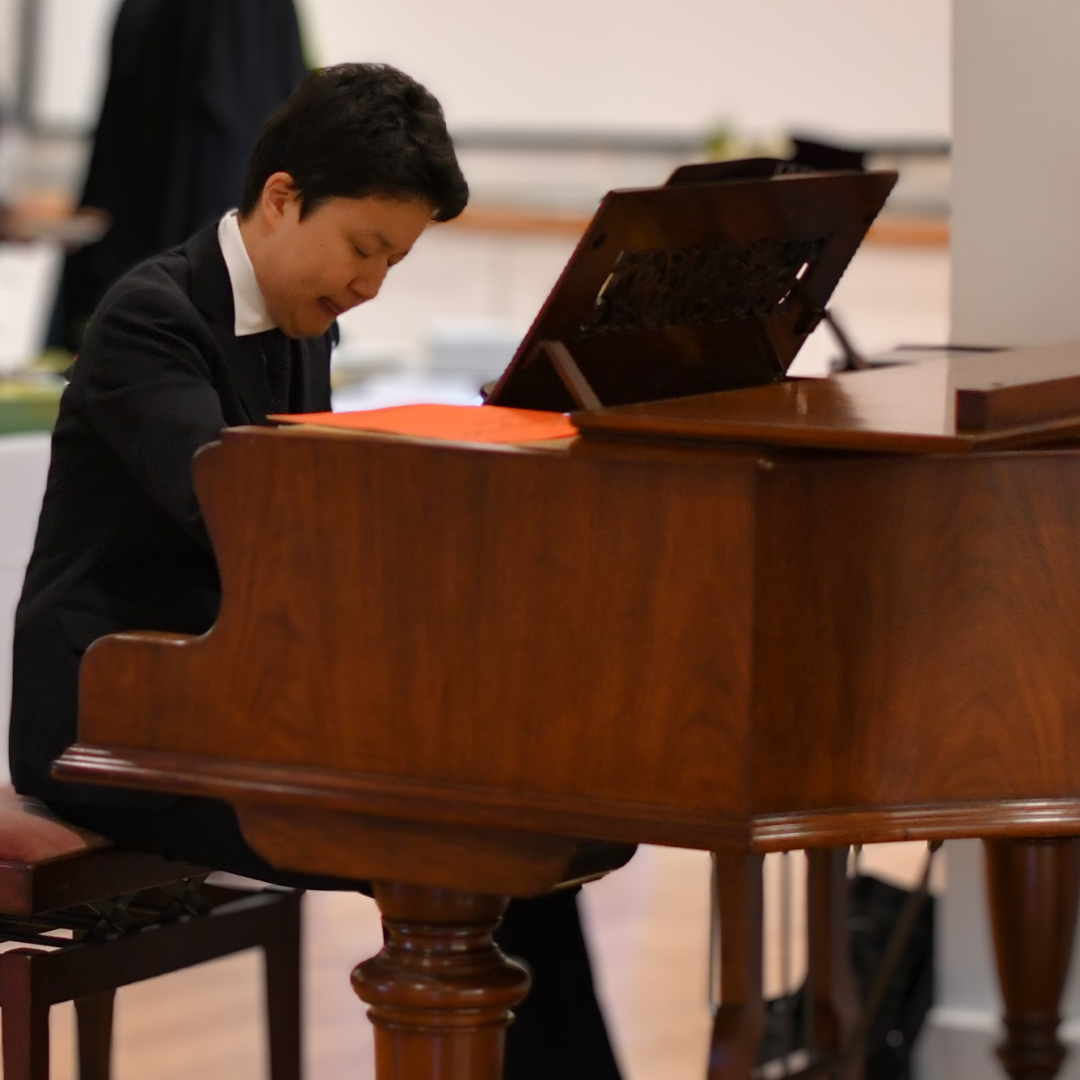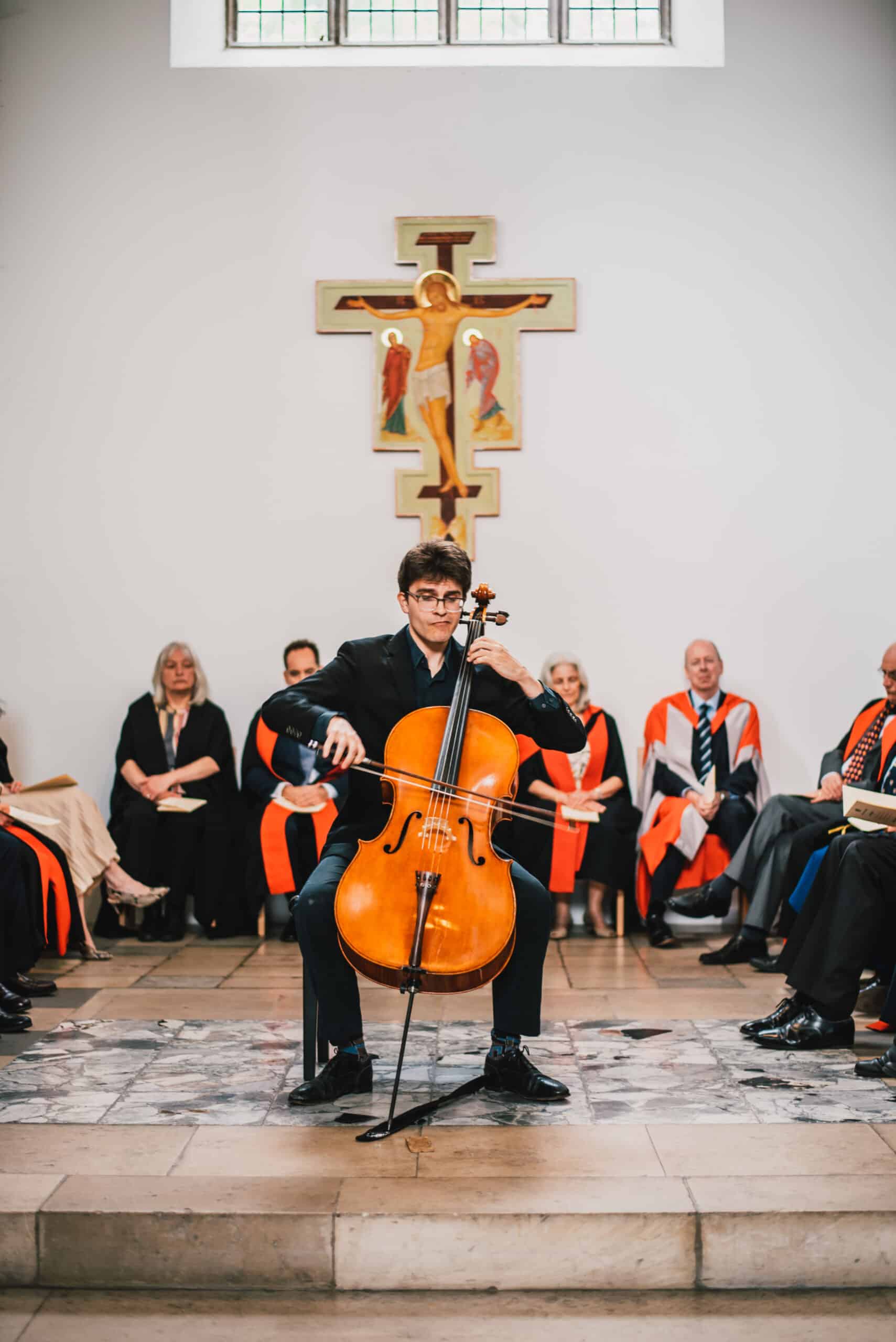Studying Music at Cambridge
- UCAS Code: W300
- How many are admitted to Cambridge every year: 51
- Typical offer: A*AA at A Level, 41-42 points at IB with 776 at Higher Level
- Essential subjects: A Level Music or ABRSM Grade 8 Theory at Merit or above
- Course length: BA (Hons) 3 years full-time; 2 years full-time for affiliate degrees
Music has a long history at Cambridge. In 1464 the world’s first firmly-authenticated Bachelor of Music degree was awarded at Cambridge. When you join the music faculty, you’ll be joining some of the most famous names in music who have studied or taught here. They include composers like Judith Weir, performers such as Mark Padmore, conductors like John Eliot Gardiner, writers such as Sara Mohr-Pietsch, broadcasters and crossover artists like Delia Derbyshire.
You’ll have the opportunity to study a range of topics, with a strong academic focus on:
- history
- analysis
- composition, including screen and media composition
- performance
The University Music School is structured around a 500-seat concert hall which houses both professional and student-led concerts. The Centre for Music and Science includes a fully equipped recording studio, IT facilities and research spaces. The Faculty owns an extensive collection of instruments which are all available for student use. The Faculty library is home to an extensive collection of scores, recordings and books as well as boosting a coffee bar in the foyer!
What can I do with a degree in Music?
Cambridge graduates with a music degree go into a wide range of career areas. The top three sectors that music Cambridge graduates joined were arts/media (circa 40% of those who responded to a recent survey), followed by public sector/business roles (15%) and then teaching (10%).
For more information, please visit the University Careers Service website.

What we look for
We are looking for students with intellectual curiosity and scholarly ambition who are keen to explore the rich diversity of the subject. We welcome and warmly encourage applications from talented students from every educational and social background. Our teaching takes account of individual abilities but some ability to play the piano is helpful.
If you are thinking of studying for a degree in music, the best thing you can do to prepare is to listen to, and read about, as much music as possible, and to think critically as you do so: do you agree with what you are reading – and if not, why not? Why do you like (or dislike) the piece of music you are listening to? How is it structured? How does it compare with other works you have heard? Or with other performances of the same work? How does the performance relate to the score? What are the historical, social, and political contexts of the work and its composer? And how important is an understanding of such context for an understanding of the music?
How to Apply
Applications for all courses are made through UCAS. You must apply by 15 October 2025 to be considered for entry in October 2026.
Requirements
Assessment
Written Work
Interviews
Deferred entry
Affiliated Students
What is a typical Term’s work
The academic year for undergraduates is divided into three terms – Michaelmas, Lent, and Easter – of eight weeks each. The course or ‘tripos’ is divided into three parts: Part IA (Year 1), Part IB (Year 2), and Part II (Year 3). Teaching is provided through lectures, seminars, workshops, masterclasses, and small-group supervisions.
In Part 1A, you can usually expect to have 4 lectures and 3 supervisions each week as well as classes in aural and practical musicianship. You will take compulsory papers in 3 major areas and 2 half-papers.
Assessment takes place through multiple formats and includes written examinations, portfolios, compositions, essays, dissertations, and recitals.
People
- Director of Studies: Ms Louisa Denby


